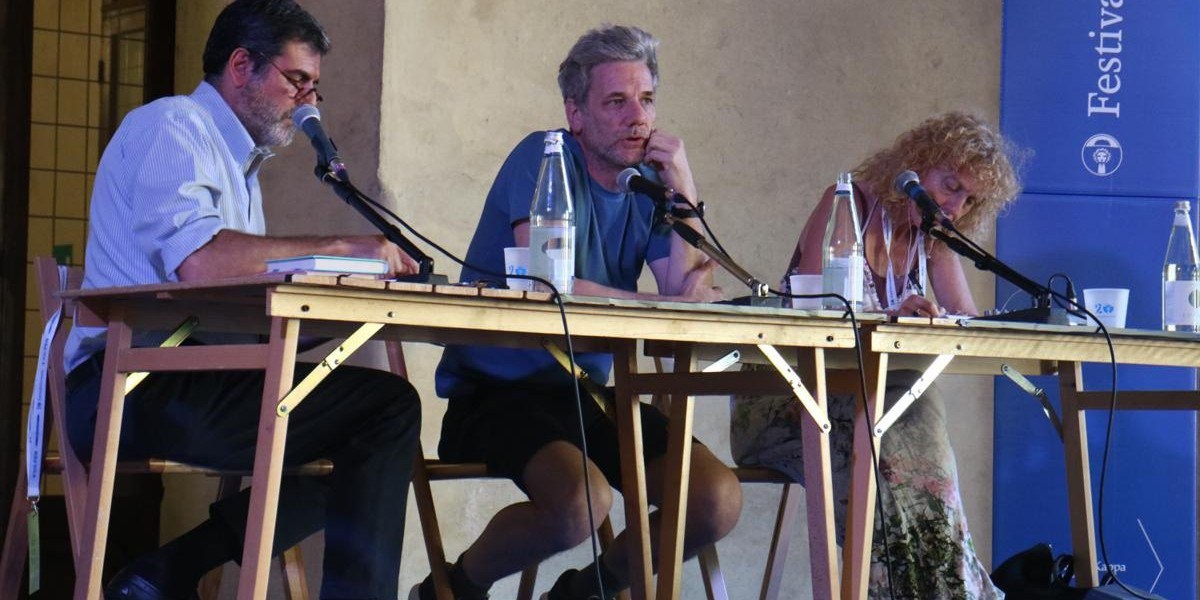
Alan Pauls unravels the myth of Borges
This year marks the first time that Festivaletteratura host Alan Pauls, defined by Internazionale as "the greatest South American writer of all time". Among all his works, the Argentinian Pauls is also the author of a trilogy - "Storia del pianto", "Storia dei capelli" and "Storia del denaro" - that is devoted to the question of loss, one of the themes most dear to Argentine culture as a whole. In Mantua, the event on Thursday 8 September, Alan Pauls and the journalist Carlo Annese focused most of all on his most recent book dedicated to the father of Argentine Jorge Luis Borges. “Il fattore Borges”, published by SUR in 2016, is an essay, a kind of instruction manual to orient yourself through his labyrinthine literature. Considering the complexity of an author like Borges, this is no easy task.
The objects, as Pauls explains, is precisely that of eroding the myth of Borges, an author who is "more quoted than read" and is often thought of as being too erudite and complex. The book does not only represent research of that factor, which is the Argentine author's biggest trademark, but it is also an attempt to bring him closer to all readers. Chapter after chapter, Pauls moves on to destroy the ten common principles on Borges, starting from his staggering erudition. And this is how Borges falls from his ivory tower and becomes more human – from “a strict author to a friendly uncle”, explains the author laughing.
Talking about Borges also means talking about literature, from Argentina and beyond. Pauls explains what the author of The Aleph and Dos fantasías memorables has left to successive generations. This is a lesson about much more than just writing – “after all, trying to imitate him would be suicidal task” – most of all, about reading. It is Borges who taught everyone a new way of reading based on a greater level of attention to the smaller details, and on the pleasure of establishing connections between elements that are seemingly distant between them. It was he who understood the importance of the context and reader, for every author and every work. Borges, more so than just a writer, was a literary philosopher. “He could have not written at all and he would still have been extraordinary”, said Pauls. Perhaps this is the true Borges "factor".



